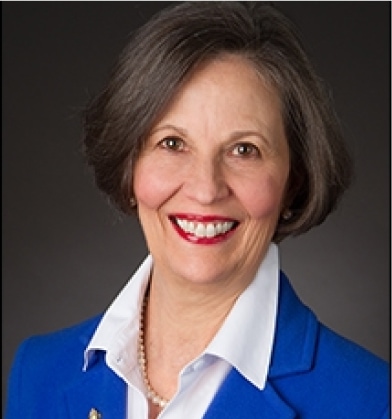Making Your Money Matter
By Ann Elliott

Take care of the pence, and the pounds will
take care of themselves
William Lowndes
When money seems to grow on trees, businesses owners have no problem meeting payroll and buying equipment. When cash flow slows to a trickle, everything changes. If you have a gap between what you spend to run your business and the income that your business generates, it signals a problem.
I met a young professional in his early thirties who worked for a large real estate company in Atlanta. At the time, real estate was hot. He said, “Just to get by you have to make at least $250,000 a year.” I sayeth unto myself, “Reeeaaally?” I wonder how he has managed to sustain himself and his family. What kind of mindset does his employer have about spending?  From one extreme to the other. On one end of the spending spectrum is profligate, a fancy word for spendthrift. At the other end of the spectrum is penurious, a fancy word for stingy. A smarter approach would be a thoughtful, wise spending plan that gives your business a strong platform to withstand the stresses of up and down cycles.
Mindless, unplanned spending can deplete your bank account and put you at significant risk. Part of the problem is that you have no cushion for unplanned emergencies or shortfalls. The stress of just keeping the doors open takes a toll on your finances, health and relationships.
If a good opportunity comes along, it may be impossible to take advantage of it. If you have to borrow money to stay afloat, you will pay a premium for it. That assumes you can find someone to loan you the money. My father-in-law often said, “You have to prove you don’t need the money before a bank makes you a loan.”
Without realizing it, many business owners have small holes that act as pickpockets. Suddenly the money is gone and they wonder what happened to it? Mindless spending can undermine your success over time. The latte factor.
Do these spending patterns sound familiar?
• Keeping up appearances—remember the British sitcom and Hyacinth Bucket?
(Pronounced boo-kay) Does a prestigious address and the price tag make good
sense for your business?
• Not thinking past the end of your nose—what are the long-term consequences of your
spending choices?
• Having no clue about where the money goes—can you track your spending and is it reasonable?
Talking about money stirs great angst in many people. Money is a tool for measuring. It is a unit of exchange. It is an inanimate object made of 25% linen and 75% cotton. We attach emotion to it. While it is not the only measure of success, money provides an excellent way to determine the progress you are making towards your goals.
Take this balanced approach to spending:
• Review your vision and mission for your business. Are they still relevant? If not, change them.
• Identify the goals required to make your vision and mission happen.
• Know what you need to reach your goals—people, equipment, space, technology?
• Develop a spending plan. Avoid the term “budget” because this implies restriction and limits. What will give you the biggest return for your outlay of money?
• Decide what you can eliminate from your current spending plan and reallocate those resources to your newer, smarter, thoughtful spending plan.
• Engage your team in finding ways to eliminate waste and redundancy in all areas.
• Commit to your spending plan. The initial change can be a little uncomfortable. The long-term benefit will be worth it.
• Find someone with accounting expertise to be part of your wealth team. This can be an outside resource.
UPS implemented a policy of right turns whenever possible for the drivers. In Right Turns Make the Most Out of Gas, www.boston.com (July 10, 2008), Tom Long interviewed UPS spokeswoman, Kristen Petrella. She said, “…in 2007 the company saved 3.1 million gallons of fuel.” By making a common sense, small change UPS reduced its fuel costs significantly without affecting the quality of service to its customers.
Where are the hidden nuggets in your business? Money matters. Make your spending choices count.
© 2010 Ann Elliott All Rights Reserved
From one extreme to the other. On one end of the spending spectrum is profligate, a fancy word for spendthrift. At the other end of the spectrum is penurious, a fancy word for stingy. A smarter approach would be a thoughtful, wise spending plan that gives your business a strong platform to withstand the stresses of up and down cycles.
Mindless, unplanned spending can deplete your bank account and put you at significant risk. Part of the problem is that you have no cushion for unplanned emergencies or shortfalls. The stress of just keeping the doors open takes a toll on your finances, health and relationships.
If a good opportunity comes along, it may be impossible to take advantage of it. If you have to borrow money to stay afloat, you will pay a premium for it. That assumes you can find someone to loan you the money. My father-in-law often said, “You have to prove you don’t need the money before a bank makes you a loan.”
Without realizing it, many business owners have small holes that act as pickpockets. Suddenly the money is gone and they wonder what happened to it? Mindless spending can undermine your success over time. The latte factor.
Do these spending patterns sound familiar?
• Keeping up appearances—remember the British sitcom and Hyacinth Bucket?
(Pronounced boo-kay) Does a prestigious address and the price tag make good
sense for your business?
• Not thinking past the end of your nose—what are the long-term consequences of your
spending choices?
• Having no clue about where the money goes—can you track your spending and is it reasonable?
Talking about money stirs great angst in many people. Money is a tool for measuring. It is a unit of exchange. It is an inanimate object made of 25% linen and 75% cotton. We attach emotion to it. While it is not the only measure of success, money provides an excellent way to determine the progress you are making towards your goals.
Take this balanced approach to spending:
• Review your vision and mission for your business. Are they still relevant? If not, change them.
• Identify the goals required to make your vision and mission happen.
• Know what you need to reach your goals—people, equipment, space, technology?
• Develop a spending plan. Avoid the term “budget” because this implies restriction and limits. What will give you the biggest return for your outlay of money?
• Decide what you can eliminate from your current spending plan and reallocate those resources to your newer, smarter, thoughtful spending plan.
• Engage your team in finding ways to eliminate waste and redundancy in all areas.
• Commit to your spending plan. The initial change can be a little uncomfortable. The long-term benefit will be worth it.
• Find someone with accounting expertise to be part of your wealth team. This can be an outside resource.
UPS implemented a policy of right turns whenever possible for the drivers. In Right Turns Make the Most Out of Gas, www.boston.com (July 10, 2008), Tom Long interviewed UPS spokeswoman, Kristen Petrella. She said, “…in 2007 the company saved 3.1 million gallons of fuel.” By making a common sense, small change UPS reduced its fuel costs significantly without affecting the quality of service to its customers.
Where are the hidden nuggets in your business? Money matters. Make your spending choices count.
© 2010 Ann Elliott All Rights Reserved
 From one extreme to the other. On one end of the spending spectrum is profligate, a fancy word for spendthrift. At the other end of the spectrum is penurious, a fancy word for stingy. A smarter approach would be a thoughtful, wise spending plan that gives your business a strong platform to withstand the stresses of up and down cycles.
Mindless, unplanned spending can deplete your bank account and put you at significant risk. Part of the problem is that you have no cushion for unplanned emergencies or shortfalls. The stress of just keeping the doors open takes a toll on your finances, health and relationships.
If a good opportunity comes along, it may be impossible to take advantage of it. If you have to borrow money to stay afloat, you will pay a premium for it. That assumes you can find someone to loan you the money. My father-in-law often said, “You have to prove you don’t need the money before a bank makes you a loan.”
Without realizing it, many business owners have small holes that act as pickpockets. Suddenly the money is gone and they wonder what happened to it? Mindless spending can undermine your success over time. The latte factor.
Do these spending patterns sound familiar?
• Keeping up appearances—remember the British sitcom and Hyacinth Bucket?
(Pronounced boo-kay) Does a prestigious address and the price tag make good
sense for your business?
• Not thinking past the end of your nose—what are the long-term consequences of your
spending choices?
• Having no clue about where the money goes—can you track your spending and is it reasonable?
Talking about money stirs great angst in many people. Money is a tool for measuring. It is a unit of exchange. It is an inanimate object made of 25% linen and 75% cotton. We attach emotion to it. While it is not the only measure of success, money provides an excellent way to determine the progress you are making towards your goals.
Take this balanced approach to spending:
• Review your vision and mission for your business. Are they still relevant? If not, change them.
• Identify the goals required to make your vision and mission happen.
• Know what you need to reach your goals—people, equipment, space, technology?
• Develop a spending plan. Avoid the term “budget” because this implies restriction and limits. What will give you the biggest return for your outlay of money?
• Decide what you can eliminate from your current spending plan and reallocate those resources to your newer, smarter, thoughtful spending plan.
• Engage your team in finding ways to eliminate waste and redundancy in all areas.
• Commit to your spending plan. The initial change can be a little uncomfortable. The long-term benefit will be worth it.
• Find someone with accounting expertise to be part of your wealth team. This can be an outside resource.
UPS implemented a policy of right turns whenever possible for the drivers. In Right Turns Make the Most Out of Gas, www.boston.com (July 10, 2008), Tom Long interviewed UPS spokeswoman, Kristen Petrella. She said, “…in 2007 the company saved 3.1 million gallons of fuel.” By making a common sense, small change UPS reduced its fuel costs significantly without affecting the quality of service to its customers.
Where are the hidden nuggets in your business? Money matters. Make your spending choices count.
© 2010 Ann Elliott All Rights Reserved
From one extreme to the other. On one end of the spending spectrum is profligate, a fancy word for spendthrift. At the other end of the spectrum is penurious, a fancy word for stingy. A smarter approach would be a thoughtful, wise spending plan that gives your business a strong platform to withstand the stresses of up and down cycles.
Mindless, unplanned spending can deplete your bank account and put you at significant risk. Part of the problem is that you have no cushion for unplanned emergencies or shortfalls. The stress of just keeping the doors open takes a toll on your finances, health and relationships.
If a good opportunity comes along, it may be impossible to take advantage of it. If you have to borrow money to stay afloat, you will pay a premium for it. That assumes you can find someone to loan you the money. My father-in-law often said, “You have to prove you don’t need the money before a bank makes you a loan.”
Without realizing it, many business owners have small holes that act as pickpockets. Suddenly the money is gone and they wonder what happened to it? Mindless spending can undermine your success over time. The latte factor.
Do these spending patterns sound familiar?
• Keeping up appearances—remember the British sitcom and Hyacinth Bucket?
(Pronounced boo-kay) Does a prestigious address and the price tag make good
sense for your business?
• Not thinking past the end of your nose—what are the long-term consequences of your
spending choices?
• Having no clue about where the money goes—can you track your spending and is it reasonable?
Talking about money stirs great angst in many people. Money is a tool for measuring. It is a unit of exchange. It is an inanimate object made of 25% linen and 75% cotton. We attach emotion to it. While it is not the only measure of success, money provides an excellent way to determine the progress you are making towards your goals.
Take this balanced approach to spending:
• Review your vision and mission for your business. Are they still relevant? If not, change them.
• Identify the goals required to make your vision and mission happen.
• Know what you need to reach your goals—people, equipment, space, technology?
• Develop a spending plan. Avoid the term “budget” because this implies restriction and limits. What will give you the biggest return for your outlay of money?
• Decide what you can eliminate from your current spending plan and reallocate those resources to your newer, smarter, thoughtful spending plan.
• Engage your team in finding ways to eliminate waste and redundancy in all areas.
• Commit to your spending plan. The initial change can be a little uncomfortable. The long-term benefit will be worth it.
• Find someone with accounting expertise to be part of your wealth team. This can be an outside resource.
UPS implemented a policy of right turns whenever possible for the drivers. In Right Turns Make the Most Out of Gas, www.boston.com (July 10, 2008), Tom Long interviewed UPS spokeswoman, Kristen Petrella. She said, “…in 2007 the company saved 3.1 million gallons of fuel.” By making a common sense, small change UPS reduced its fuel costs significantly without affecting the quality of service to its customers.
Where are the hidden nuggets in your business? Money matters. Make your spending choices count.
© 2010 Ann Elliott All Rights ReservedShare this resource




